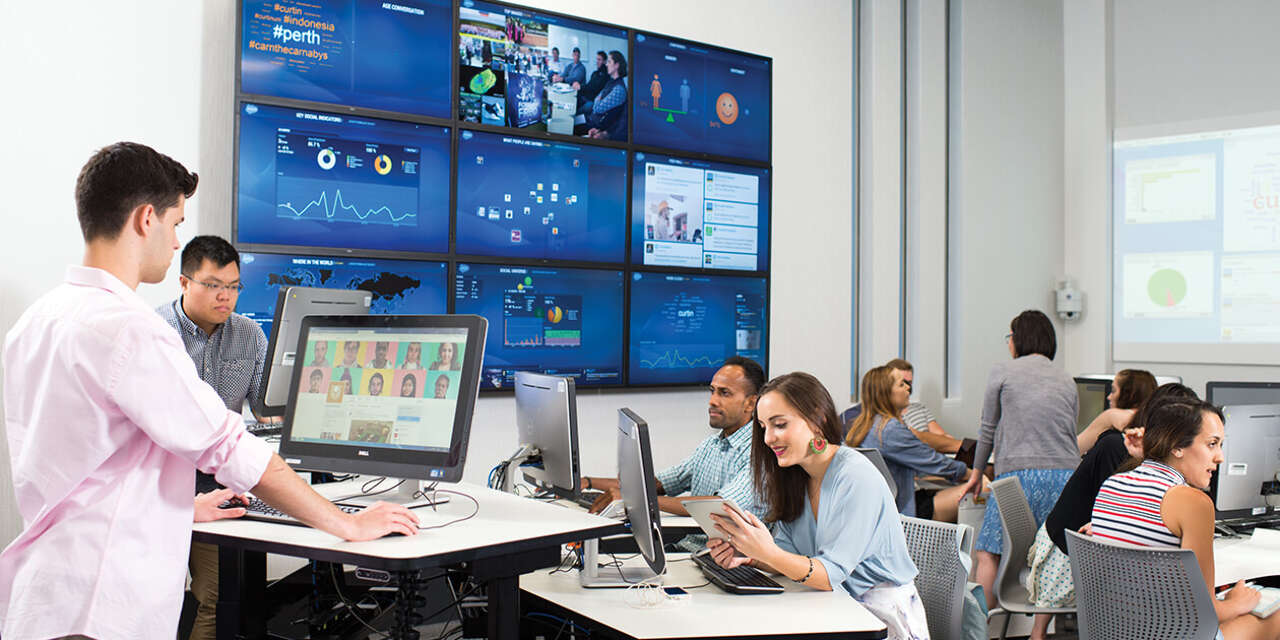Overview
Overview
This course explores the social, cultural and political impacts of the internet, and digital and social media platforms.
You will learn the fundamentals of online communications: how people network, create, collaborate and share information through digital and social media platforms, for a range of different purposes and career paths.
Throughout the course, you’ll build practical and advanced skills in creating, maintaining and managing online communications across web media, publishing and presence; and develop expertise in online collaboration and community management.
You’ll learn how to mobilise digital and social media to promote products, causes and interests.
You’ll also explore how digital and social media are reshaping political systems, cultures, societies and economies, and how to use digital and social media to make the world a better place.
After completing your course you'll have the career-ready skills for diverse roles in digital and social media; and strategy, content and policy.
Digital and Social Media is offered as part of the Bachelor of Arts. You can create a degree that suits your career goals by enhancing your studies with a second major.
You can also study Digital and Social Media as part of a Bachelor of Arts, Bachelor of Commerce, or Bachelor of Science, Bachelor of Arts double degree.
This course can also be studied within the Web Media specialisation of the Bachelor of Communications.
How this course will make you industry ready
Our units cover web-based media and content creation; writing for web-based platforms; everyday life in digital cultures; digital identity and self-branding; entertainment and games; digital economies; online activism and social movements; power and politics in the digital era; and theories of the role of technology in social change.
We design activities and assessments using various platforms and tools, including social media such as X, Instagram, TikTok and Facebook. You will create content for different online platforms and learn how to use them in effective ways.
What jobs can the Digital and Social Media course lead to?
Careers
- Online content creator
- Web designer / developer
- Social media coordinator
- Web communications manager
- Digital producer / strategist
- Data business analyst
- Policymaker
Industries
- Media and communications
- Advertising and marketing
- Research and policy
- Non-profit and community sector
What you'll learn
- understand and apply key concepts of Internet Studies and apply transdisciplinary thinking to the application and creation of ideas concerning networked technologies of information and communication
- think critically, creatively and reflectively so as to imagine, design, use and critique networked technologies of information and communication
- conduct appropriate scholarly and professional research to find, access, organise, evaluate and synthesise information through a variety of media and apply that information to the construction of knowledge
- communicate and facilitate communication through a variety of media, for different purposes, and for different audiences
- use the Internet and related networked technologies of information and communication with an understanding of the complex interaction of political, cultural, and economic forces that constitutes technology as social
- further develop skills and knowledge through self-directed learning
- understand the complex interplay of local, national and global factors that influence and are expressed through the Internet and networked technologies of information and communication
- recognise and value cultural difference and understand its significance in relation to network technologies and their use in society for communication and information
- act ethically and responsibly to use, sustain and expand the social, business and cultural networks that exist via the Internet, when working independently and in teams


